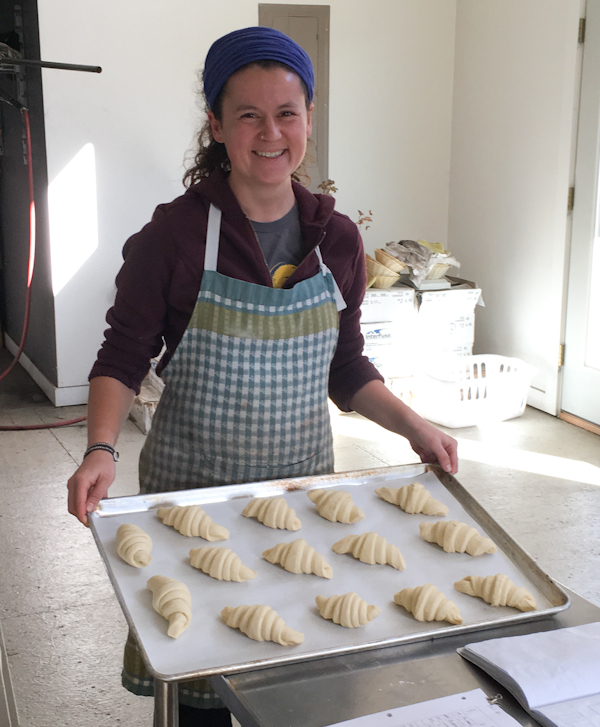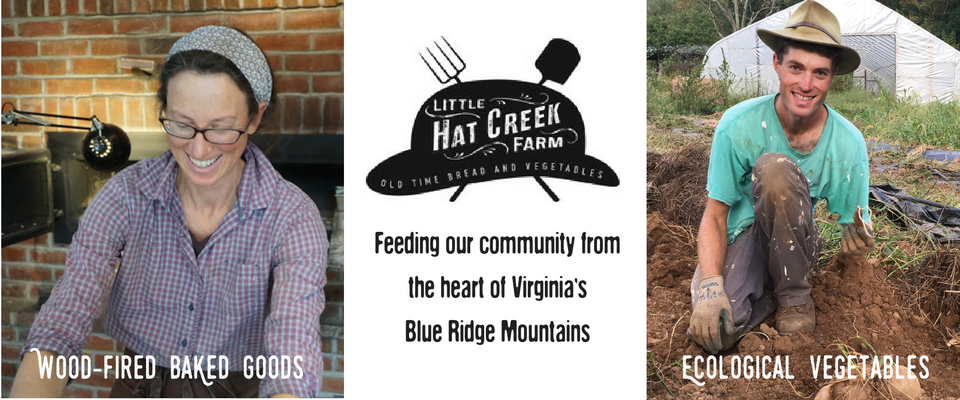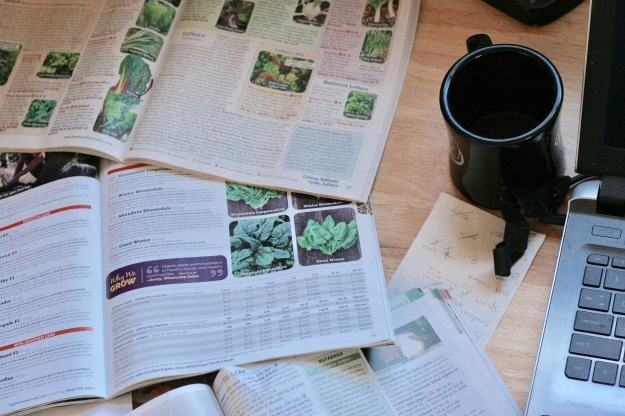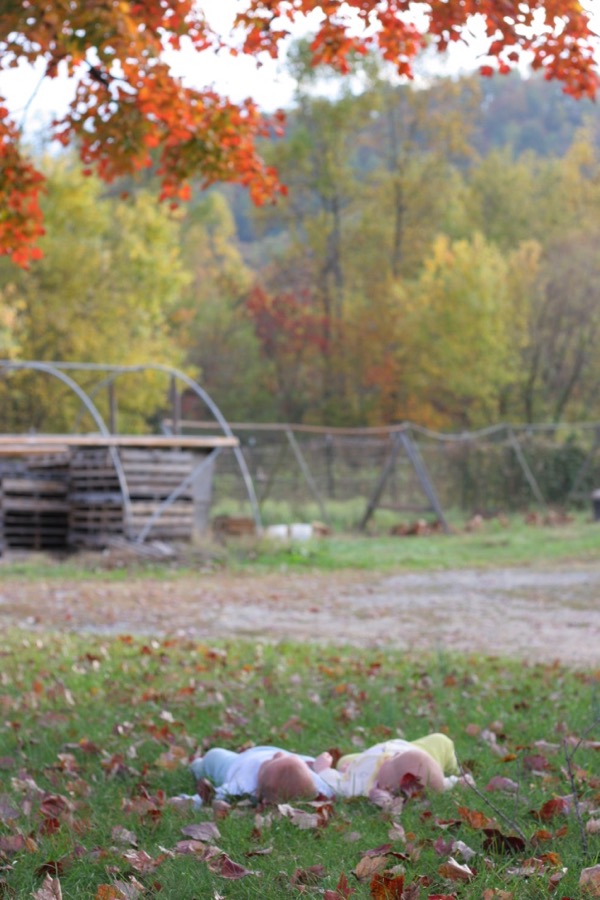We are looking for a full-time bread and pastry baker to join our 2018 team! We are a growing farm-bakery in our fifth year. This position is paid hourly and starts April 2, 2018. Apply now by sending a resume and cover letter to littlehatcreek@gmail.com.

General description: Little Hat Creek Farm is a successful small diversified vegetable farm and wood-fired bakery. 2018 will be our fifth season. Our weeks are structured around preparing to sell at three fast-paced farmer’s markets and delivering our CSA. We use ecological farming practices on one acre of annual vegetables and a small fruit orchard. Our bakery specializes in naturally-leavened breads made by hand with local flours and hand-laminated croissants. Our 5’x7′ wood-fired oven is housed in a climate-controlled bakery building on the farm. In addition to our retail sales outlets, we also wholesale bread and pastries to stores and restaurants. Our team includes one full-time farm employee and one part-time bakery employee in addition to Ben, who manages the vegetable side of things, and Heather, who manages the bakery.
Skills desired: You are a good fit for our team if you love making and sharing good food and if our farm+bakery business model excites you. You may have some experience making bread, but most importantly, you are interested in being in charge of firing an oven and making sourdough breads and croissants from start to finish, including selling what you make at a farmer’s market. At the market, you will take pride in presenting the week’s produce, enjoy interacting with customers, and be able perform mental arithmetic in a fast-paced and exciting environment. You are a self-starter who can also perform routine tasks. You are organized and consistently attentive to cleanliness. You are able to work quickly and efficiently while attending to detail, and you are able to problem-solve on the fly. You are punctual, able to safely lift fifty pounds, and able to meet deadlines. You enjoy interacting with customers, work well with others, but are also content to work alone.
Duties: You will be responsible for the overall daily production of our bakery. This includes mixing, shaping, and baking bread and pastries, dishwashing, oven and firewood management, ingredient restocking, and general cleanup. You will also be expected to represent our farm-bakery at one farmer’s market. Heather will train you, and assist you with production on the busier days. You may be asked to help train and supervise part-time employees. We currently fire the oven and bake two days a week, but this may increase as we take on new accounts. Occasionally, you may be asked to participate in other farm activities, including greenhouse work, harvesting, mulching and weeding; post-harvest processing like pickling, jamming and drying; and deliveries.
Duration and Hours: You will start work Monday April 2, 2018. You must be available to to continue working through October 2018, preferably through December 2018, with the possibility of continuing part-time through the winter. Your working hours will not exceed 50 hours per week and will generally be during daytime hours. Your days off are flexible within the framework of our weekly schedule.
Housing: We have housing available.
Compensation: You will start at $7.25/hr until you are trained, or for the first month, whichever is shorter. After that, we pay $8/hr, with the possibility of another raise after four months. We pay monthly. You will have unlimited free access to unsold farm produce, including eggs, bread and pastries.
You will receive training in marketable skills, including but not limited to:
-managing a large wood-fired oven
-making pastries and naturally-leavened bread on a commercial scale
-adjusting recipes to account for weather and ingredient variation
-handling food safely
-processing fruits and vegetables
-selling farm and bakery products at a busy farmer’s market
-successfully growing a small local food business
You will also have access to the logic behind everything we do. We make a point of sharing the details of our farming, baking, and business practices, so we encourage you to ask about starting and running a business like ours. And because there are many ways of doing things, we also try to take you on visits to 2-3 other farms and bakeries over the course of the season.
We look forward to hearing from you!
Ben + Heather











 In December, when the seed catalogues start arriving in the mail, I begin to think about the coming year’s Community Supported Agriculture (CSA) Program. Managing a CSA properly means planning for a diverse assortment of crops in each box. We don’t want to deliver a box with 10 pounds of summer squash in it and nothing else (though there are weeks when I could do that!). Of course, summer squash is one of the “anchors” of our CSA, along with tomatoes, cucumbers, and peppers, so we attempt to plant and harvest continuous successions of these anchor crops. So when I peruse the seed catalogues by the woodstove, sipping my morning cup of coffee, I am searching for a few untried but promising varieties of each important crop to add variety and keep things interesting both for me and our CSA members. And every year we like to try a completely new crop. In 2018 we are excited to try our hand growing celery and black-eyed peas.
In December, when the seed catalogues start arriving in the mail, I begin to think about the coming year’s Community Supported Agriculture (CSA) Program. Managing a CSA properly means planning for a diverse assortment of crops in each box. We don’t want to deliver a box with 10 pounds of summer squash in it and nothing else (though there are weeks when I could do that!). Of course, summer squash is one of the “anchors” of our CSA, along with tomatoes, cucumbers, and peppers, so we attempt to plant and harvest continuous successions of these anchor crops. So when I peruse the seed catalogues by the woodstove, sipping my morning cup of coffee, I am searching for a few untried but promising varieties of each important crop to add variety and keep things interesting both for me and our CSA members. And every year we like to try a completely new crop. In 2018 we are excited to try our hand growing celery and black-eyed peas. Last year we had some special requests for mini butter croissant rolls, so this year we are offering them to everyone! We have also added bulk pricing on pastries and larger bread loaves to make it easier to feed your family.
Last year we had some special requests for mini butter croissant rolls, so this year we are offering them to everyone! We have also added bulk pricing on pastries and larger bread loaves to make it easier to feed your family.












